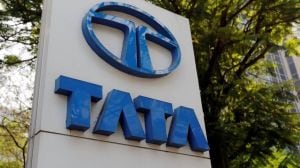US ordered TSMC to halt shipments to China of chips used in AI applications
The US Department of Commerce has ordered Taiwan Semiconductor Manufacturing Co (TSMC) to stop supplying advanced chips to Chinese customers, particularly those used in AI applications.
 The comments are the first official response from China after Reuters reported on Sunday that the U.S. had ordered TSMC to do so. TSMC halted the shipments from Monday, a source familiar with the matter had said. (File Image)
The comments are the first official response from China after Reuters reported on Sunday that the U.S. had ordered TSMC to do so. TSMC halted the shipments from Monday, a source familiar with the matter had said. (File Image)The U.S. ordered Taiwan Semiconductor Manufacturing Co to halt shipments of advanced chips to Chinese customers that are often used in artificial intelligence applications starting Monday, according to a person familiar with the matter. The Department of Commerce sent a letter to TSMC imposing export restrictions on certain sophisticated chips, of 7 nanometer or more advanced designs, destined for China that power AI accelerator and graphics processing units (GPU), the person said.
The U.S. order, which is being reported for the first time, comes just weeks after TSMC notified the Commerce Department that one of its chips had been found in a Huawei AI processor, as Reuters reported last month. Tech research firm Tech Insights had taken apart the product, revealing the TSMC chip and apparent violation of export controls. Huawei, at the center of the U.S. action, is on a restricted trade list, which requires suppliers to obtain licenses to ship any goods or technology to the company. Any license that could aid Huawei’s AI efforts would likely be denied.
TSMC suspended shipments to China-based chip designer Sophgo after its chip matched the one found on the Huawei AI processor, sources told Reuters last month.
Reuters could not determine how the chip ended up on Huawei’s Ascend 910B, released in 2022, viewed as the most advanced AI chip available from a Chinese company.
The latest clampdown hits many more companies and will allow the U.S. to assess whether other companies are diverting chips to Huawei for its AI processor. As a result of the letter, TSMC notified affected clients that it was suspending shipments of chips starting Monday, the person said.
The Commerce Department declined comment.
A spokesperson for TSMC also declined to comment beyond saying it was a “law-abiding company…committed to complying with all applicable rules and regulations, including applicable export controls.”
The Commerce Department communication — known as an “is informed” letter — allows the U.S. to bypass lengthy rule-writing processes to quickly impose new licensing requirements on specific companies. Ijiwei, a Chinese media site covering the semiconductor industry, reported on Friday that TSMC notified Chinese chip design companies it would suspend 7 nanometer or below chips for AI and GPU customers beginning Nov. 11. The action comes as both Republican and Democratic lawmakers have raised concerns about the inadequacy of export controls on China and the Commerce Department’s enforcement of them.
In 2022, the Commerce Department sent is-informed letters to Nvidia and AMD restricting their ability to export top AI-related chips to China, and to chip equipment makers like Lam Research, Applied Materials and KLA to restrict tools to make advanced chips to China.
The restrictions in those letters were later turned into rules that apply to companies beyond them. The U.S. has been delayed in updating rules on tech exports to China. As Reuters reported in July, the Biden administration drafted new rules on some foreign exports of chipmaking equipment and planned to add about 120 Chinese companies to the Commerce Department’s restricted entity list, including chipmaking factories, toolmakers, and related companies.
But despite plans for an August release, and later tentative target dates for publication, the rules still have not been issued.







